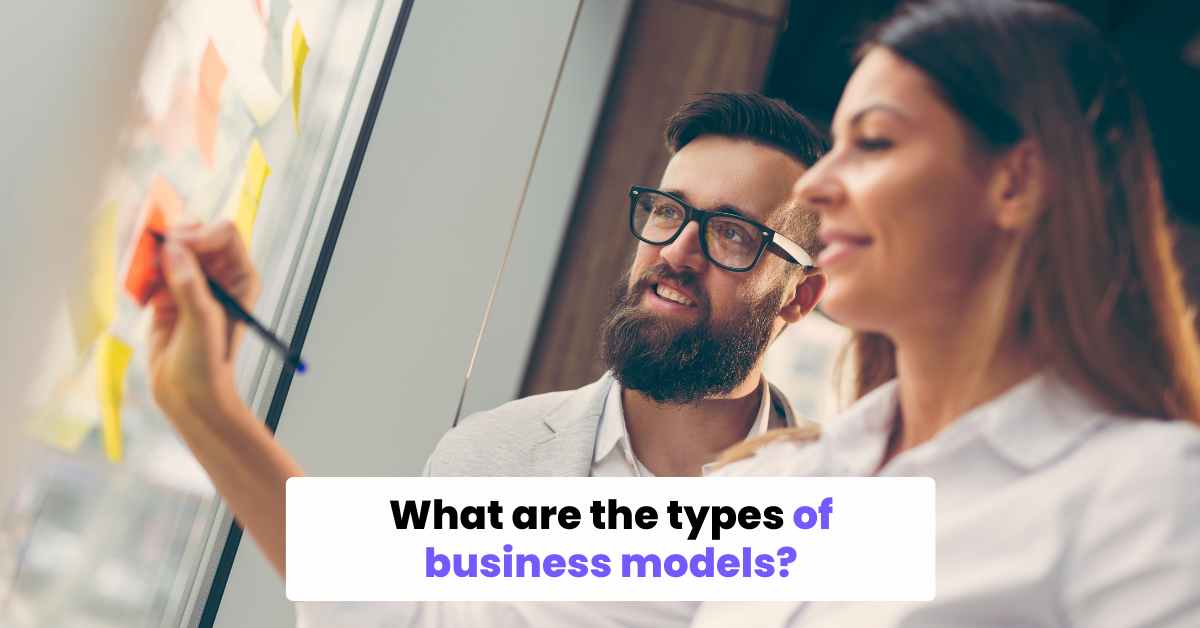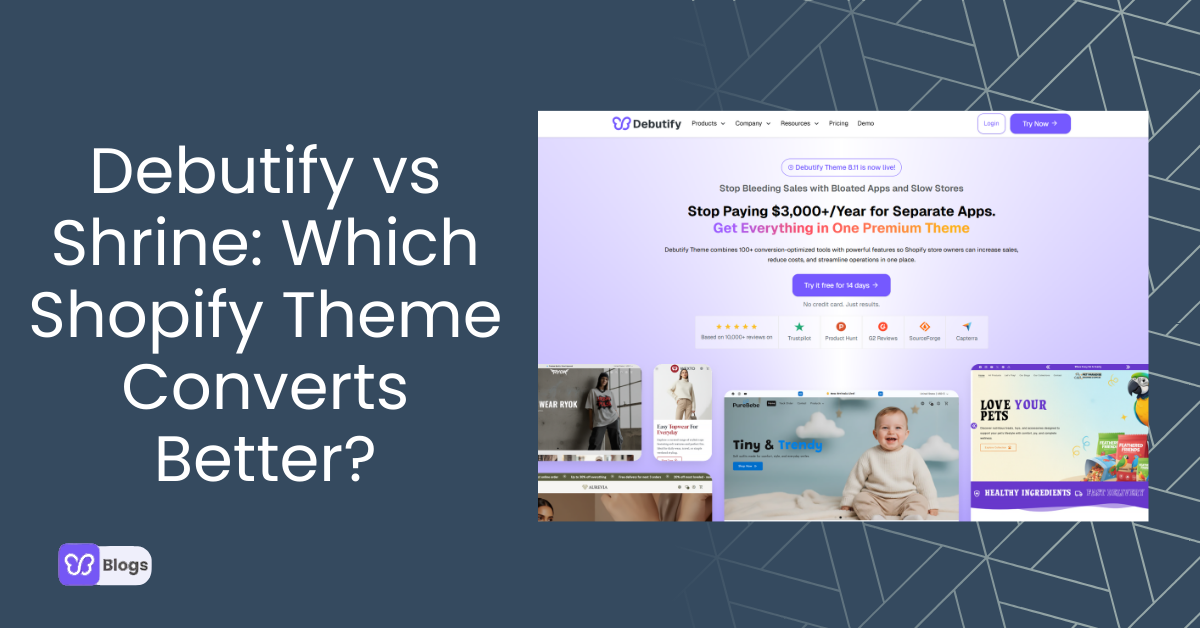Did you know that there were 2.14 billion digital buyers worldwide in 2021? That's a lot. But it also proves that the eCommerce industry is thriving.
And it's not going anywhere. In fact, it is predicted that the eCommerce market will reach $1 trillion by 2025.
Because of this growing number, it's essential to have a robust business plan to make your eCommerce business successful.
So, this blog is perfect for you whether you're starting your business or already a business owner who wants to understand how other business models work.
You'll learn...
- What is a business model?
- Why do you need to understand the different types of business models?
- What are the different types of business models?
- 3 quick and easy tips for running an eCommerce business
Are you ready to fill your mind with a goldmine of information? Let's deep dive!
What is a business model?
A business model means how a company creates value and makes money. It defines the structure, operations, target market, and expenses. This is also a profit-making plan for eCommerce businesses.
Business models are important because they're the foundation of your business. It defines how your company will operate.
For example, your business model is B2B or business-to-business. It's easier to understand that your business operates by catering to other companies.
From there, you can start creating your business plans, strategies, and more. As I said, a business model is the foundation of your company.
So, why do you need to learn them?
Why are business models essential to learn?
It's important to understand that learning business models are not just limited to people planning to start a business.
So, you still need to understand business models even if you're a business owner. Why? To...
1. See what suits your company
If you're still in the early planning stages of your business... you need to learn the different types of business models to see what suits your company.
For example, if you're not planning to work with other manufacturers due to business costs... your business is DTC or direct-to-consumer (and we'll discuss that later).
You need to evaluate the pros and cons of each business model when starting your business. This way, you can plan accordingly.
But if you're already a business owner, learning the business models will help...
2. Expand your business
Building a successful business includes expanding. And one way to do that is by learning more about the different business models.
Let's say you own a B2C or business-to-consumer company... but you noticed that the subscription business model is also thriving.
Of course, you can also try it to see if it works. Sounds good, right? But that's not all! Because learning eCommerce business models allow you to...
3. Create a solid business plan
The key to creating a foolproof business plan is to know the foundation of your business... and that's your business model.
If you understand how your business works, your business plan will have a direction. You know what to do, goals to achieve, expenses, etc.
So, these reasons prove you need to learn the business models to build a thriving eCommerce business.
What are these, anyway?
What are the types of business models?

Here are some types of business models you need to know.
1. Business-to-Business (B2B)
A business-to-business model means your eCommerce store is catering to other business owners.
For example, you're selling technologies. Instead of selling to consumers or individuals, you're selling to business owners with physical stores.
If you plan to have a B2B eCommerce business model, here are the...
Benefits:
- Better customer loyalty
- Greater customer experience
- Customer relationships
But one of the challenges of having a B2B model is marketing your product. You need to be more strategic because you're targeting a particular set of people... which are business owners.
You can't just use random marketing platforms to promote your products or services. You need to find where they are.
The good thing is that once you have them as customers, you can build great relationships and be their service provider.
The next business model is...
2. Business-to-Consumer (B2C)
The business-to-consumer business model caters to individual consumers. And this is one of the most common business models.
For example, you're selling clothes on your online store. Your target customers aren't wholesalers but individuals who wish to wear nice clothes.
So, what are the benefits?
Benefits:
- Brand awareness
- Wider target customers
- Start with a low capital
Another benefit of having a B2C online business is it's less challenging to market your products online. Why? Because you're targeting individuals.
Sure, you need to find where they hang out online. But unlike the B2B model, the process takes shorter before they purchase from you.
Another business model you should know is...
3. Direct-To-Consumer (DTC)
A direct-to-consumer business model means you are directly selling to your customers. You have no middlemen involved.
This is not like the traditional retail model where there are manufacturers, suppliers, or retailers before the products get to the customers. In DTC ecommerce, it's a direct transaction.
Benefits:
- Greater control over your business
- Lowered business cost
- Choose how to market and position your products
That's one of the great things about running a DTC business. It's up to you how you want to market your products. It's your brand, after all.
You can choose how to tell your brand story, who are the target customers, and more. Again, you have control.
The next business model is...
4. Consumer-to-Business (C2B)
A consumer-to-business model means consumers are providing services or products to companies. Here are some examples of how C2B works:
- Freelancers and independent providing services to business owners
- Influencers promoting companies on their social media
- Bloggers getting paid for promoting companies on their blogs
Benefits:
- Flexibility
- Handle multiple projects
- Decide your rate
Being a C2B model allows you to create opportunities for yourself. And speaking of which...
5. Consumer-to-Consumer (C2C)
A consumer-to-consumer model means consumers are selling products to other consumers. This includes selling pro-loved products.
You can post your products on eCommerce and social media platforms, like eBay, Etsy, Shopify, Facebook Marketplace, and more.
Benefits:
- Low capital
- Lower operating cost
- Price flexibility
Also, since you're selling to other consumers... it's easier to find them as well! You can find them by posting on the platforms I mentioned or on your personal social media accounts.
Now that you know some business models, the next question is... How to run a successful business?
3 Quick and easy tips for running a successful eCommerce business

1. Use eCommerce tools
You need to use eCommerce tools to make running and marketing your business easier. Here are some tools you can use:
- All-in-one eCommerce toolkit
- Email marketing tools
- Customer Relationship Management platforms
- App integrations
- High-converting themes
By using these, you can make your life easier. You can also achieve more results while focusing on your business.
2. Keep up with eCommerce trends
Since the digital world is fast-paced, you must keep up with the trends and ensure you're ahead of the game. So, here are ways to keep up with eCommerce trends:
- Watch educational YouTube videos
- Listen to eCommerce podcasts
- Read educational blogs about business and marketing
If you do these, you can take strategic actions to improve your eCommerce store.
3. Enhance customer experience
Whatever business model you have, it's crucial to make the customer experience as seamless as possible. You can achieve this if you:
- Map out the customer journey
- Conduct surveys and see what customers prefer
- Build genuine relationships with customers
You may have a suitable business model, but customer experience should be one of your priorities to make your business successful.
So, it's time to...
Find the right business model for your company!
You need to know your business model to give you direction on what you need to prepare for in running a business. This is one of the first steps you should take.
But like I said... it doesn't matter if you own an established company. You still need to learn the business models to grow your knowledge and expand your business.
And whether you're an established business owner or just starting, you need to know these to run a conversion-friendly eCommerce website...





